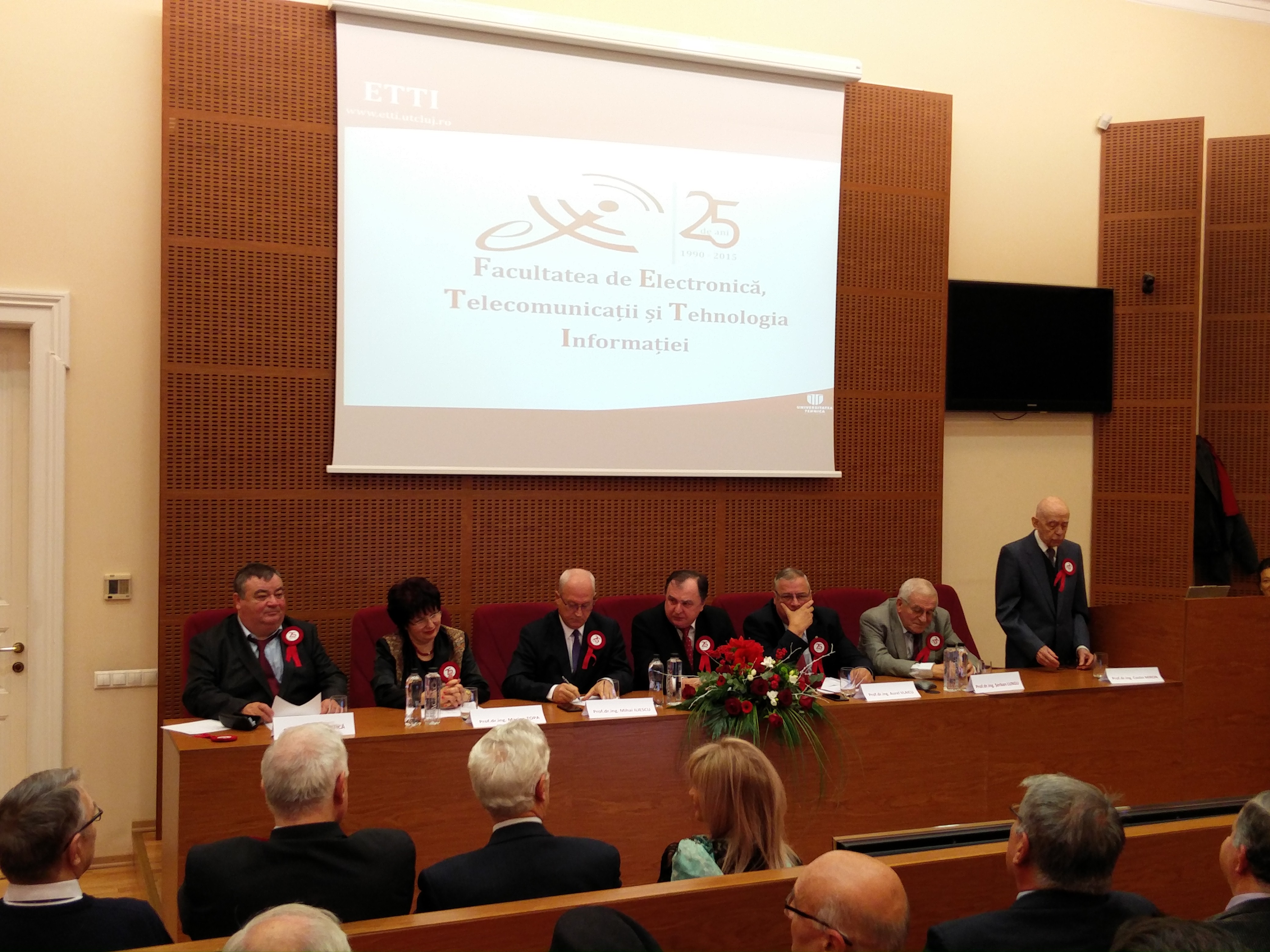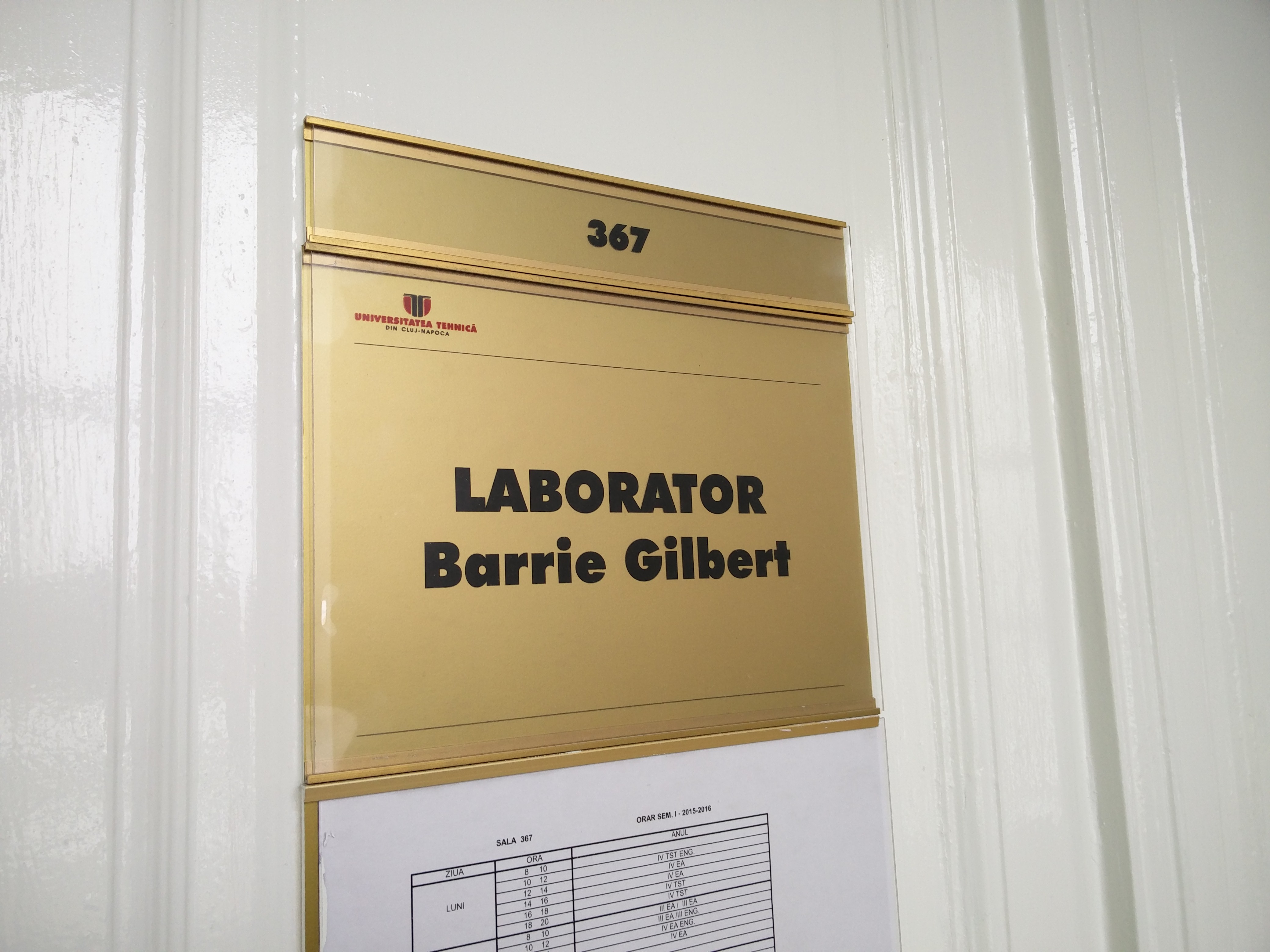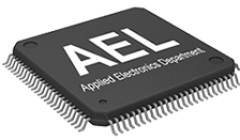Cu ocazia aniversării a 25 de ani de la înfințarea Facultății de Electronică, Telecomunicații si Tehnologia Informației, departamentul de Electronică Aplicată a inaugurat sala „Barrie Gilbert”. Sala este dotată cu tehnologii de ultimă oră in materie de asistență a profesorului pentru susținerea activităților didactice.


În continuare se poate citi mesajul transmis de Barrie Gilbert cu ocazia acestei aniversări.
Professor Petreus, ladies and gentlemen:
It is a true and delightful pleasure to join you in celebrating this moment in the development of the University at Cluj-Napoca and to thank you once again for conferring on me the honor of Doctor Honoris Causa.
My first visit to Romania was all too short and allowed no time to see your beautiful countryside. But there is every likelihood that there will be future opportunities to visit and to help further in establishing an analog laboratory and a strong lecture series for teaching this very important part of the modern engineering of communication systems and a huge variety of crucial techniques related to sensor in every imaginable corner of the modern world.
As developers of electronic systems over the years, we can truly say that we have changed the world. Unfortunately, there is an increasing use of communication systems and encryption in ways that, being honest and peace-loving people, we never foresaw. But on balance, we know that the applications of electronics in such areas as safer automobiles and aeronautics, in medicine and in a huge variety of instruments has brought about a better life for millions of people.
Nonetheless, we are at a moment in time when electronics is still in its infancy. We can trace the beginning of the era in which the control of power, the amplification of tiny radio signals and the development of oscillators became first possible to the invention and subsequent utilization of the triode vacuum tube, a little over one hundred years ago. The story of that development makes a fascinating study in the history of science. Like so many discoveries, it was actually only a matter of guesswork that inspired Lee de Forest to insert a grid of wires between the cathode and anode of the diode tube, previously developed by others – also involving much that was accidental. In a similar way, it is little known that the bipolar junction transistor was not so much invented as discovered by some casual tinkering with a piece of germanium and two springy whiskers of tungsten. Only after it was taken up by the more famous Brattain and Bardeen wax it announced as a Bell Telephone Labs breakthrough.
The history of science and technology is full of such accounts of accidents leading to extremely important consequences. Three of the most outstanding examples are the discovery of penicillin by the Scottish scientist Alexander Fleming in 1928; the vulcanization of rubber by the addition of sulphur by Thomas Hancock (1786-1865), who patented the idea long before Goodyear; and the discovery of X-rays by Wilhelm Roentgen, a German professor of physics, for which remarkable achievement he was honored with the first Nobel Prize in Physics in 1901.
In my view, such accidental discoveries are not a thing of the past. Modern analog designers, especially, should be encouraged to ask, over and over again, throughout every day “What If?” and “How about…” as well, of course as the all-important question “Why?” In my own experience, the best ideas behind my over one-hundred patents came in this way, rather than through tedious analysis, and with scarcely any use of mathematics. Students need to be told this lesson: It is important to take chances.
Indeed, it is essential, and absolutely necessary to make mistakes in order to learn. Experience can only come in this way. So while we will need to teach the essentials of analog design in a systematic way, we also need to provide many opportunities to work at the bench, to use signal generators and oscilloscopes and spectrum analyzers and power supplies and much else, all supported by a rich supply of basic components in numerous cabinets. I hope very deeply that this will be possible before long at your school in Cluj-Napoca; and that it will be my privilege to be a part of this development in the years ahead. Nothing could be more rewarding. And thank you again for opening this door.
Barrie Gilbert
